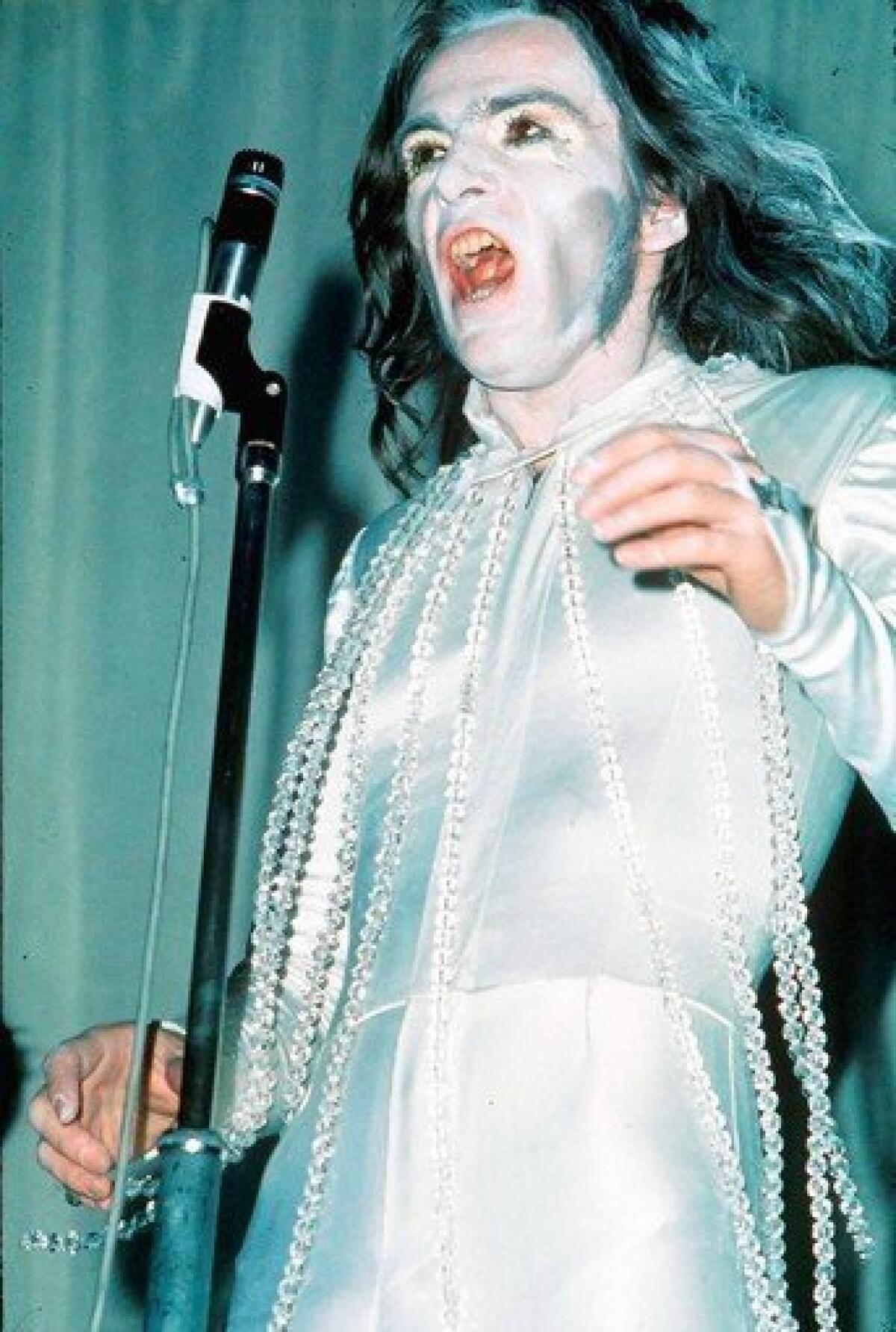‘Yes Is the Answer’ asks the question: Who’s afraid of prog rock?

“Yes Is the Answer” is a collection of 20 essays related to progressive rock and its somewhat less regularly derided cousin art rock. Fifteen of the writers care about the subject, or used to. The other five came along to kibitz — a chess term for the chatter of bystanders who provide unwanted commentary while the players sit and rack their brains. As with chess, progressive rock is commonly assumed by outsiders to be a sexless, all-male realm of wasted intellect. Many of the essayists in “Yes Is the Answer” operate under this belief. If you’re a prog fan, opening the book can be like stumbling into Monty Python’s Department of Abuse.
More than a few of the authors write about how embarrassed they were as kids, and continue to be, over a musical fondness they believe marked them as socially maladroit members of an all-male club that had no chance of getting a date. It slips their collective mind that the Moody Blues were purveyors of some of the most effective makeout music of the late 20th century.
Despite the insults, “Yes Is the Answer” is probably worth prog fans’ attention. To recap: From 1969 to 1974, the prog pack led by the British bands King Crimson, Emerson, Lake & Palmer, Yes, Genesis and Gentle Giant wove a good deal of rich, ornate stitchwork into rock’s tapestry, mainly using thread borrowed from European classical music instead of American blues and country.
Proggers were the peacocks of art rock, the larger genus to which prog belonged. Each of the top prog bands attained a songwriting peak it could sustain for no more than three or four years. They all then became almost unrelievedly awful. In their dotage, prog and art rock bands were useful straw men for the punk rockers who began spouting off in 1976.
Punk was indispensable and lastingly influential, but it did great damage by insisting that its fans become its citizens. You couldn’t just enjoy punk — you had to be punk, at least in America, where the movement was hardier and more fanatical (by 1979, some of the original British punks were making art-rockish musical moves). Too many of the essayists in “Yes Is the Answer” seem to have unthinkingly internalized the notion that what captured them as youngsters made them social losers. Liking prog meant they weren’t punk enough, and that was unpardonable. Those of us who were around for prog’s first flowering, before it went bad and punk set in, can’t be fed that line.
Novelist Rick Moody, the best-known writer on board, assumes that prog fandom is grounds for embarrassment and titles his essay “Defending the Indefensible.” After wasting 71/2 pages kicking the spavined carcass that ELP became after 1973, he gets around to a cogent defense of the band and its ilk, built around the useful observation that prog and art rock were not dead-end aberrations but lay at the core of an incredibly fertile creative movement, launched by the 1967 Beatles, that persistently probed for new colors and complex forms.
The indisputable star in this band of essayists is Tom Junod, whose “Out, Angels Out” might be worth the book’s $24 price by itself. Junod revisits a perilous passage in his late teens when he was falling into alienation and despondency. Genesis singer Peter Gabriel became the lifeline that pulled him through — although Junod’s closest sidekick in prog didn’t make it. It’s one of the best things I’ve read about rock music or, for that matter, about how adolescence can suddenly turn into a rope bridge over a chasm in a howling wind.
There’s wisdom in every word of Jim DeRogatis’ straightforwardly savvy look at Genesis’ early brilliance, topped off with a brief, deft evisceration (Moody, take note) of the band’s wretched later ascendance to superstardom. I was annoyed but entertained by musician-novelist Wesley Stace’s blithely overgeneralized slaps at prog-rock lyrics, which he punctures while humorously and affectionately proclaiming the merits of Soft Machine and others in an obscure coterie of witty, jazz-influenced art rock bands he grew up enjoying in Canterbury, England. I’ve had only a passing acquaintance with them, and he made me want to hear more. John Albert’s account of a heartbreaking patch of the Southern California teenage wasteland left me saddened but grateful to have read it. Former Times staff writer Margaret Wappler, no fan of prog, shares an interesting tale about how she came to appreciate King Crimson’s debut album during her freshman year of college — in a romantic way likely not anticipated by the band.
Do I recommend this book? Despite everything, yes is the answer.
Yes Is the Answer
And Other Prog Rock Tales
Edited by Marc Weingarten and Tyson Cornell
Barnacle/Rare Bird Books: 280 pp., $24
More to Read
Sign up for our Book Club newsletter
Get the latest news, events and more from the Los Angeles Times Book Club, and help us get L.A. reading and talking.
You may occasionally receive promotional content from the Los Angeles Times.










